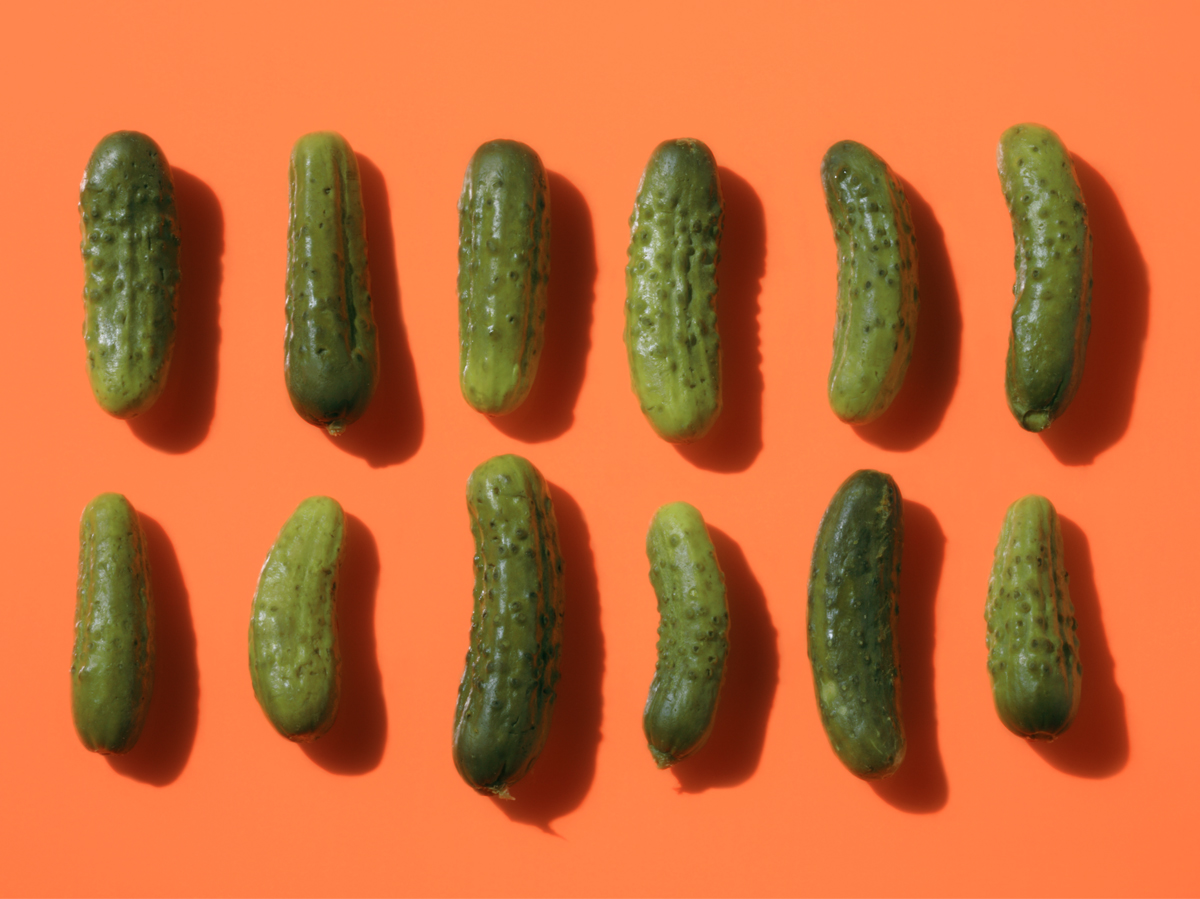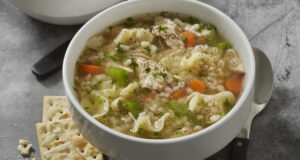
Pickled cucumbers, known to most of us simply as “pickles,” are one of the most beloved snacks. They can be sweet, sour, spicy, dill, or a mixture of all the above. Whether you’re eating them on their own or putting them on top of your hamburgers, the tangy vinegar flavor can really hit the spot — but are pickles good for you?
Superfans of pickles have probably asked themselves that question from time to time. That’s also true for those who rely on the low-calorie and low-carb veggie to fill them up without breaking their meal plan on forms of intermittent fasting and keto dieting. Of course, there’s the pesky and unavoidable fact that most of the pickles we buy at the grocery store are also packed with a ton of sodium. Some people believe that’s actually a good thing when it comes to recovering from leg cramps; they even chug the pickle juice with the hope that the sodium will help calm down their pangs of pain. With all that in mind, however, there’s a lot more to consider before diving into a pile of pickles. Take a look below to find out more about pickles.
Are pickles good for you?
There’s sadly no simple yes or no answer when it comes to the health benefits of pickles. According to the American Heart Association, adults should limit themselves to no more than 1,500 milligrams of sodium per day. One dill pickle can have anywhere from 500 to over 1,000 milligrams of sodium, which means snacking on one can take up most (if not all) of the recommended daily allowance of sodium. Obviously, it can be difficult to stop at just one while enjoying the salty goodness of a savory pickle — which is probably why the AHA also claims that most adults consume more than twice as much sodium as advised. If your doctor has told you to cut back on salt, you unfortunately might need to avoid adding pickles to your cart at the grocery store. Even so-called “low sodium” options can have more than your doctor’s recommended amount.
That said, pickles aren’t totally bad for us. Like most things we put on our plates, enjoying them in moderation is the key. It’s not all doom and gloom either; there are also a few benefits you can look forward to from the vinegary snack. The fermentation process transforms pickles into a helpful probiotic that boosts healthy bacteria in bellies to break down foods that are harder to digest. A healthy gut can also lead to a healthier mind, according to a study published in Psychiatry Research that found a link between probiotic properties and a reduction in social anxiety. Again, just make sure you’re not overindulging.
In addition to supporting gut health, pickles can be a good source of antioxidants, especially if they’re made from colorful vegetables like carrots, beets, or cucumbers. Antioxidants help to combat free radicals in the body, potentially reducing inflammation and protecting against cell damage.
Pickles can also be surprisingly hydrating. The high water content in cucumbers carries over into pickles, and the small amount of vinegar in pickle juice may aid in replenishing electrolytes, making it popular with athletes for post-workout recovery. However, pickle juice should be consumed sparingly to avoid excess salt intake.
So, are pickles good for you? Enjoying them occasionally in small portions can add flavor to your diet and bring along some health perks. Just be mindful of your serving size and sodium intake for a balanced approach.
Are pickles keto?
Ketogenic diets require a strict inspection of all your daily meals, which makes pickles seem especially ideal when folks feel their tummies start to rumble. A Reddit group for those on the diet plan even refers to pickles as a “keto-er’s best friend.” One user on the thread admitted that he picked up a full gallon of spears while at a store, and another claimed the high sodium level actually helped him with headaches. If you’re on a keto diet, it’s important to talk with your doctor before adding more pickles to your meals in order to make sure you’re not putting your heart at risk while trying to slim down.
On the other hand, there are keto followers who believe the lectins in pickles are not compatible with the diet. Lectins, which can be found in the seeds of cucumbers, are inflammatory agents that might counteract the benefits of a low-calorie and low-carb plan. Although the fermenting process does remove some of the lectins, enough remain to worry keto fans. Luckily, there’s one easy solution: Make pickles yourself and remove the seeds before soaking them in the vinegar mixture.
Who knew a simple pickle could hide so many fascinating health benefits and concerns at the same time? We still think chowing down on the tangy snack is OK from time to time (maybe even a few deliciously deep fried slices), though they probably shouldn’t be the main focus of your daily meals… as tempting as that might be.




